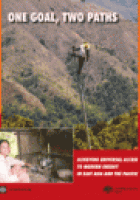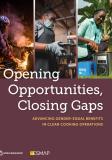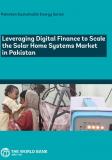Publications

The purpose of the current flagship report is to address energy access and related developmental issues in East Asia Pacific (EAP) that so far have received less attention compared to the macro energy issues of climate change and reduction of greenhouse gas (GHG) emissions. EAP countries have two steep paths to climb to achieve universal access to modern energy: electricity and modern cooking solutions. Approximately 170 million people, or 34 million households, in EAP countries do not have electricity connections in their homes. This number is equivalent to approximately 9 percent of the Region's total population, and 30 percent of the Region's population excluding China. Moreover, approximately 6 times that number, or over 1 billion people, still lack access to modern cooking solutions. In addition, EAP is exceeded by only Sub Saharan Africa and South Asia in the number of people who lack access to electricity. However, access to both electricity and modern cooking solutions is essential to address the enduring impacts of poverty and to move the poor onto a rising development trajectory. The link between access to modern energy and development is most clearly defined by the Millennium Development Goals (MDG). The MDGs were formulated to reduce global poverty while increasing education, empowering women, and improving child and maternal health. Although there is no direct reference to energy in the MDGs, the need for access to energy, particularly modern energy, to improve overall welfare is well recognized by the development community.
World Bank. 2011. One Goal, Two Paths: Achieving Universal Access to Modern Energy in East Asia and the Pacific. World Bank. © World Bank. License: CC BY 3.0 IGO. https://openknowledge.worldbank.org/handle/10986/2354

